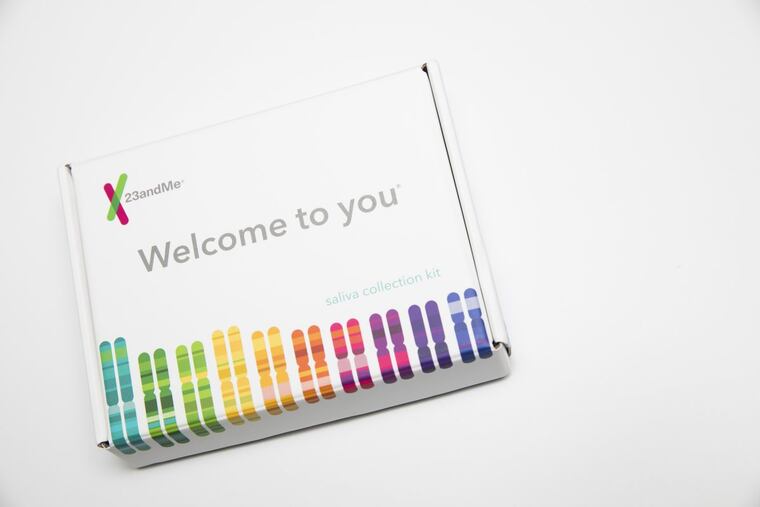Genetic testing at home: 10 facts a cardiologist wants you to know
When a patient came in, clutching the results of a genetic testing kit that indicated she was at risk of early heart disease, he decided to explore this branch of do-it-yourself health care. What he found was surprising and a little scary.

Direct-to-consumer genetic testing is a hot topic. Forbes magazine named it one of the three "Big Technologies to Watch" in 2016, and the field has only grown since then. Testing kits are promoted all over TV, print media, and the internet, promising everything from family fun (find out where your ancestors came from!) to serious health risks (are you at genetic risk for cancer?).
Testing soon will be available to help predict one's risk of developing heart disease. It may help provide individualized risk assessments, leading to personalized medicine. This is already being done in oncology, where chemotherapies are being targeted toward people with certain genetic profiles.
In the future, before you take a medication for high blood pressure or elevated cholesterol, genetic testing will likely be used to guide drug therapy.
This developing market became real to me when I saw a patient in my cardiology practice who came in with her DNA test results from one of the numerous private genetic testing companies that advertise on television and online.
She sent in a saliva sample, and in return got details of her ancestry – and results suggesting she faces a significantly higher genetic risk of developing heart disease at a young age. This led me to do some research of my own, and the results were both surprising and a little scary. Here is what I found:
Advertising for direct-to-consumer testing is increasing for what has become a big business. The genomic testing market is expected to reach $230 million in revenues in 2018.
Concerns have been raised about the clinical validity of many of these tests, with significant variation seen among different testing companies.
Researchers have expressed concerns that when such testing suggests potentially life-threatening conditions, support services such as genetic counseling were often severely lacking.
Some companies even offer tests to find genetic compatibility with a partner, by suggesting testing may be the key to a successful romantic relationship. There is no evidence for this.
Studies focused on the content of websites selling genetic testing kits suggest that they do not provide complete information to the consumer. Not enough attention is paid to unintended consequences, such as results leading to genetic discrimination, emotional reaction to the results, and breach of confidentiality.
Only about half of the people using these tests report the results to their doctor.
Another use of personalized medicine has been the direct-to-consumer advertising of stem-cell treatment. These are pluripotential cells, which have the potential to develop into different cell types. Harvested from our own blood, fat or bone marrow, they can be infused intravenously, and have been touted as a cure for heart disease, joint pain, and other problems. The average cost of these treatments is $6,000, often with a discount for cash. No insurance coverage is available, as they are not FDA-approved, there is no evidence that they work and almost no oversight.
Exciting evidence suggests that if you do have genomic markers of increased cardiac risk, lifestyle changes can make a huge difference. People with a genetic predisposition for heart disease had more benefit from changing their diet and exercising than groups with a lower genetic risk.
Genetic testing has been used to identify those at increased risk for sports injuries, and to guide exercise recommendations. But a recent study in BMC Genomics suggested that the risk of giving poor advice based on questionable evidence outweighed any benefits.
The use of gene-editing techniques, such as CRISPR-Cas9, has potential to repair genetic mutations, and insert genes that can possibly cure disease. This potential is obviously incredible and rapidly evolving. With it come ethical dilemmas about how to best use this technology.
We will be hearing much more about genomics and personalized medicine in the years to come. It is important to realize that the field is rapidly evolving. Although much of this technology is not yet ready for prime time, there are many direct-to-consumer companies capitalizing on what is already available. For now, buyer beware.
David Becker, M.D., is a board certified cardiologist at Chestnut Hill Temple Cardiology, and associate director of preventive cardiology at the Temple Heart and Vascular Institute.